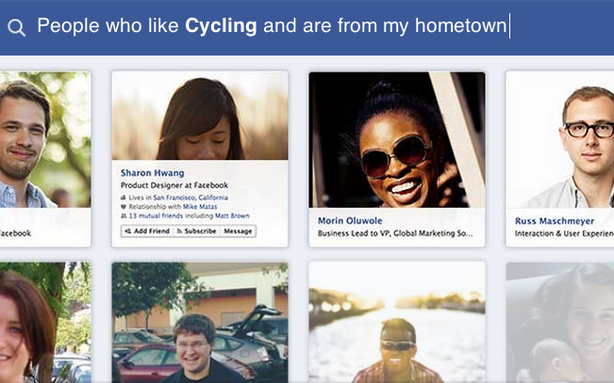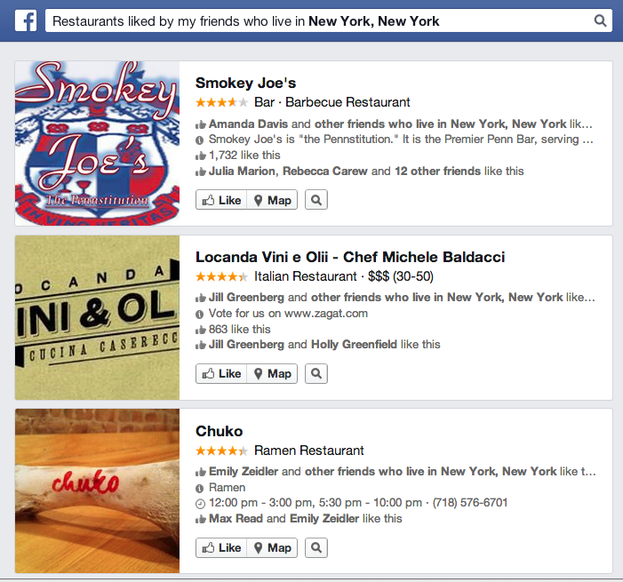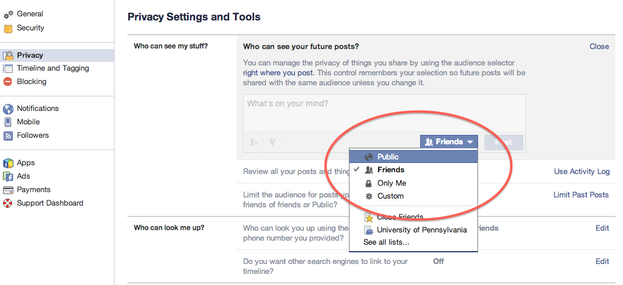How to Get Ready for Facebook's Graph Search
Six months after announcing its search tool, Facebook will finally release a finished product to the U.S. English-speaking masses on Monday. When Graph Search first debuted (in Beta!) last January, it didn't work that well and wasn't at all ready for wide-release. Facebook has since spruced up the search engine, reports The New York Times' Vindu Goel, starting with making the search bar more noticeable to fixing up the algorithms. So now the question is: Are you ready for it? As The Atlantic Wire has had Graph Search since way back in January, we're here to help.
RELATED: Facebook Graph Search Still Doesn't Speak Human
Adjust Your Privacy Settings
Graph Search makes everything you have ever shared on Facebook easier to find, which for some people is terrifying. It's not possibly to opt-out completely, but you can make certain things impossible to search by tinkering with the settings. The company promises not to surface anything to the general public that isn't shared publicly. Under settings, the privacy tab allows you to change sharing from "public" (i.e., the entire world) to "friends" if you'd rather keep things invisible to random humans using the search engine. Under this setting, however, Facebook friends can still surface old posts. For the real recluses out there the "only me" option locks everything in. Though, if you're picking that one, you have to ask: Why are you posting things on Facebook in the first place.
RELATED: The Privacy Guide to Facebook's New Graph Search
RELATED: Why Facebook's Graph Search Can't Give Users What They're Looking for... Yet
Understand Facebook's Definition of Private and Public
The privacy settings above only apply to things a user posted, but not things other people posted about a user. It's exactly as confusing as it sounds. Photos that other people put up of you, for example, don't fall into that category. For the privacy paranoid, keeping track of what does and does not fall under Graph Search will take some diligence. If an embarrassing sex- or drugs-related image gets tagged and uploaded to the service, you might want to untag it or if it's really terrible ask said poster to take it down.
RELATED: Why Google Isn't Scared of Facebook's Graph Search
Learn Graph Search Lingo
When Graph Search first came out it didn't parse requests very well. The social network claims that it has improved "query understanding" and "results" so that it thinks more like a human. But the context based sharing still takes some getting used to. Unlike Google, which understands keyphrases, Facebook connects relationships. So, instead of searching for "New York City restaurants" you'd want to search for "Restaurants my friends in New York City like," which will bring up something like this:
RELATED: Are Facebook Users Higher Class?
Though, you can also just search for restaurants in New York City and it will bring up a list of the most popular ones on Facebook, in general. But the whole point of Graph Search is to get recommendations from the people you trust, so that probably won't be all that useful.



